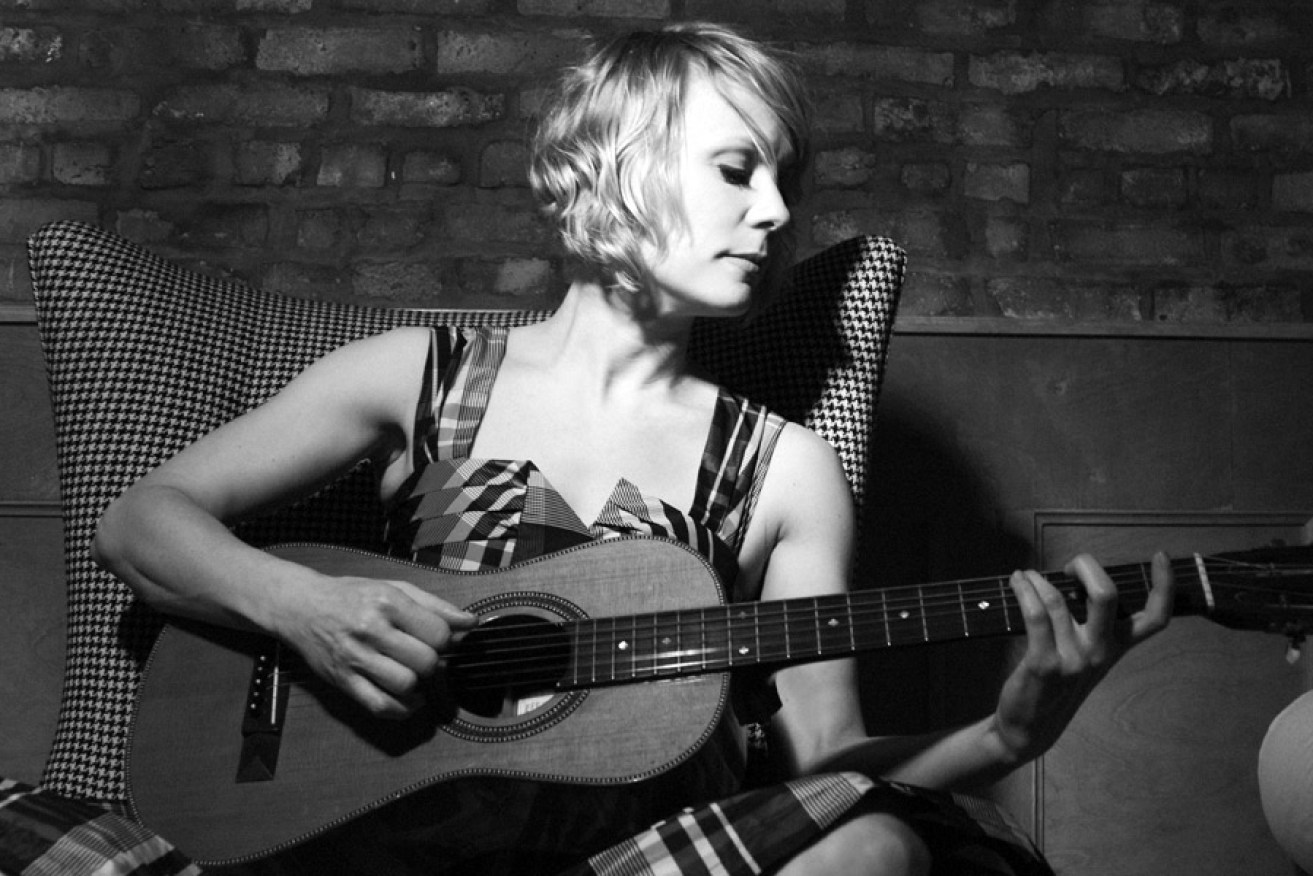Jo Lawry, the Adelaide-raised jazz singer well-known for her backing work with Sting, last night made a triumphant return home as a solo performer.
A sold-out Spiegeltent witnessed another revelation about Lawry: she’s a fine songwriter.
The New York-based performer, in the presence of many friends and family, used her one-off Fringe show to launch her new CD, Taking Pictures. Like all excellent songwriters, she told stories that were as compelling as her musicianship (which was very good indeed).
The songs, performed mostly solo by Lawry on guitar, were in the folk-pop realm, and she delivered a beautifully restrained performance. As anyone who witnessed her work with Sting and Paul Simon at their Adelaide concert a few weeks ago would know, Lawry can belt and riff with the best of them.
However, alone on stage with her own intimate songs, she performs with elegant and finely-controlled restraint. In this mode, she has a classic folk-pop voice, in the style of someone like Eva Cassidy in the upper register.
The song ‘Taking Pictures’ is a wry account of the failure to live in the moment, illustrated by the hordes of tourists photographing the Mona Lisa at the Louvre in a desperation to capture an instant, rather than experiencing it fully.
‘Flying Free’ is written for her aunt, Tina Lawton, whom she never met, but who first inspired Lawry to sing through her recordings. [Lawton was a well-known Adelaide folk singer in the 1960s who died in a plane crash in 1968 at the age of just 24.]
The intimacy continued with a brace of beautiful break-up/love-gone-wrong songs (buy the album just to hear the devastating ‘I Said No’).
Drummer Ben Todd and bass guitarist Chris Hale joined her to finish the one-hour set, including on a joyful ripper of a song, ‘The Bathtub and the Sea’, co-written with Memphis songwriter Doug Wamble.
With time running out on the Spiegeltent’s tight schedule, she dispensed with the charade of being called back for an encore and just launched into her last song, a duet (on the album) with Sting called ‘Impossible’, but not before coaxing the audience to sing in passable four-part harmony – quite an achievement.
In her gentle style, she offered a self-deprecating apology for her presumption about an encore – it wasn’t a presumption at all.
Click here for more Adelaide Fringe reviews.






